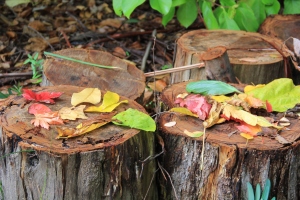This poster exploded onto the early childhood pages on Facebook yesterday. Within hours of Jeff from Explorations Early Learning, LLC posting it to his Wall shares hit the hundreds and as I write it’s been shared over 1,800 times (possibly much more – some Pages have been sharing the image without attribution to Jeff and his Page). [Update: it’s now been shared almost 5,000 times as at 3/10/12, and it’s also available for purchase from Jeff’s website]

Source: Explorations Early Learning, LLC
It seems to have struck a chord; the vast majority of comments have been along the lines of “I love this!”, “so true!”, “yay!”, “amen!”, “I want to give this to all the parents at my centre/preschool!” and “I want to give this to all the teachers at my child’s centre/preschool!”
And those last two comments are, of course, the point. Because learning through play is something that is increasingly getting lost in the relentless drive towards academic programs for preschoolers, and unrealistic expectations of children’s behaviour and needs. More so in the US (where Jeff is based) than here in Australia, but even here many preschool programs are less play-based than they used to be.
There is a tendency to push the curriculum downwards – what would previously have been expected of Year One students is now increasingly being taught in kindergarten, and what would have been taught in kindergarten is being taught in preschools. Worksheets and standardised testing are supplanting construction play and home corners. Outdoor play is being replaced with desk time. Children’s needs are being overruled by society’s demands.
And this goes against 100 years of solid research into child development and how children learn. Academic preschool programs that focus on direct instruction are worse than useless: they are actively harmful to children’s development in both the short and long term.
Similarly, programs that have unreal expectations of children’s behaviour – programs that require 3 year olds to sit still, to keep their hands to themselves, to stand in line, to be patient – are setting children up for failure. Children with perfectly age and developmentally appropriate behaviour are being labelled as problems. Children are being punished with time-out or other aversive systems for behaviour that is not only normal – it is desirable!
Everything that children need to learn comes through play, and developmentally appropriate quality programs that provide extensive opportunities for learning through play provide the best environment for children to flourish.
Now understand: I am not arguing that preschool programs should be a free-for-all, in which children are merely left to play without adult support and guidance about behaviour. Again, the research is unequivocal – such laissez-faire programs are ineffective at best, and harmful at worst.
But unless we as a society recognise that young children need extensive opportunities to learn through play, that academic direct instruction models are harmful to them, and that their “undesirable” behaviour is normal and developmentally appropriate, we are are failing them.
The adverse outcomes will be felt for generations; we must not allow that to happen. Play and play-based learning must be nurtured, it must be at the heart of every educational program whether that is child care, preschool, kindergarten or school. As professionals or parents we need to stand up and defend play; to capitulate to the forces that oppose play is to fail both our children and society.
__________________________________________________________________________
This post has been featured on It’s Playtime at let the children play
_________________________________________________________________________
Like this post? Make sure you check out the rest of my web site!
And you can find Child’s Play Music on Facebook
You might also like these blog posts:
The Best Playground in Perth – The Naturescape
Music in ECE: Yes, You Can! Part One
Water Play, Music Play & Children: A Natural Combination







